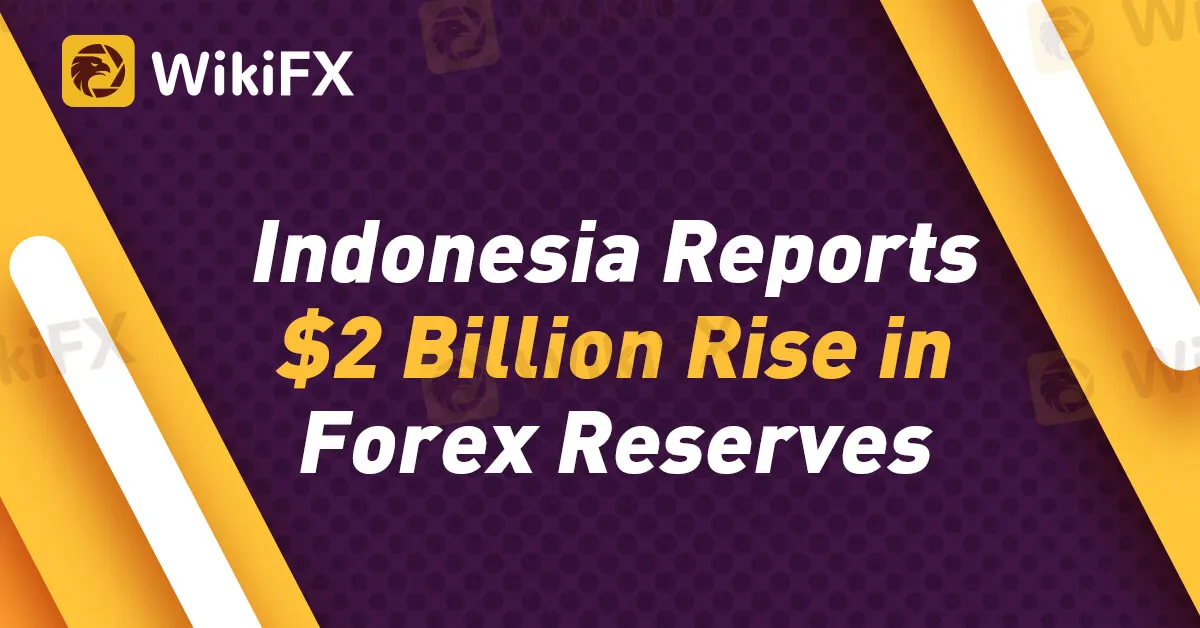简体中文
繁體中文
English
Pусский
日本語
ภาษาไทย
Tiếng Việt
Bahasa Indonesia
Español
हिन्दी
Filippiiniläinen
Français
Deutsch
Português
Türkçe
한국어
العربية
Indonesia Reports $2 Billion Rise in Forex Reserves
Abstract:According to Investor Daily, on Tuesday, Bank Indonesia announced on Tuesday the country’s forex reserves stood at $139.4 billion in January, an increase of $2.2 billion when compared to December 2022.

According to Investor Daily, on Tuesday, Bank Indonesia announced on Tuesday the countrys forex reserves stood at $139.4 billion in January, an increase of $2.2 billion when compared to December 2022.
“The increase in the foreign exchange reserves in January 2023 was propelled by governments global bond issuance and tax and services revenues,” central bank spokesman Erwin Haryono said in a statement.
Erwin said the reserves were adequate to meet foreign exchange needs for six months of import and the governments external obligations.
“Bank of Indonesia considers that the forex reserves are strong enough to provide resilience against external factors and maintain the macroeconomics and monetary system stability,” Erwin said.
Airlangga Hartarto, Indonesia's chief economic minister, said last month that foreign exchange revenues from export activities were being considered for holding in Indonesia's financial system.
The government is drafting a regulation to determine “how much, from what sector, and for how long” foreign exchange revenues can be kept in the country, Airlangga said.

Disclaimer:
The views in this article only represent the author's personal views, and do not constitute investment advice on this platform. This platform does not guarantee the accuracy, completeness and timeliness of the information in the article, and will not be liable for any loss caused by the use of or reliance on the information in the article.
Read more

The January Effect of 2025 in Forex Markets
Like other financial markets, the forex market is influenced by various factors, including economic data, geopolitical events, and market sentiment. However, one often overlooked factor is seasonality—patterns that recur at specific times of the year. One such seasonal phenomenon is the "January Effect," which can have a notable impact on currency trading.

OPEC's Profound Influence on the Oil Market
At present, oil prices remain relatively stable, but global economic recovery and shifting market demands continue to drive price fluctuations. Amid an uncertain global economic and geopolitical landscape, OPEC’s policies and actions remain key determinants of oil prices.

What Are The Top 5 Cryptocurrency Predictions For 2025?
Discover the top 5 cryptocurrency predictions for 2025, including Ethereum's rise, a potential bear market, meme coin struggles, and regulatory shifts.

What Euro Investors Can't Afford to Miss
For euro investors, geopolitical factors, inflation data, and the European Central Bank's policy direction will determine the market trends over the next few months.
WikiFX Broker
Latest News
Think Before You Click: Malaysian Loses RM240,000 to Investment Scam
Lawsuit Filed Against PayPal Over Honey’s Affiliate Fraud
What Are The Top 5 Cryptocurrency Predictions For 2025?
XRP Price Prediction for 2025: Will It Hit $4.30 or More?
Dr. Sandip Ghosh, Ex-RG Kar Principal, Involved in Multi-Crore Scam
OPEC's Profound Influence on the Oil Market
Just2Trade: SAFE or SCAM?
The January Effect of 2025 in Forex Markets
New York becomes first US city with congestion charge
Currency Calculator






